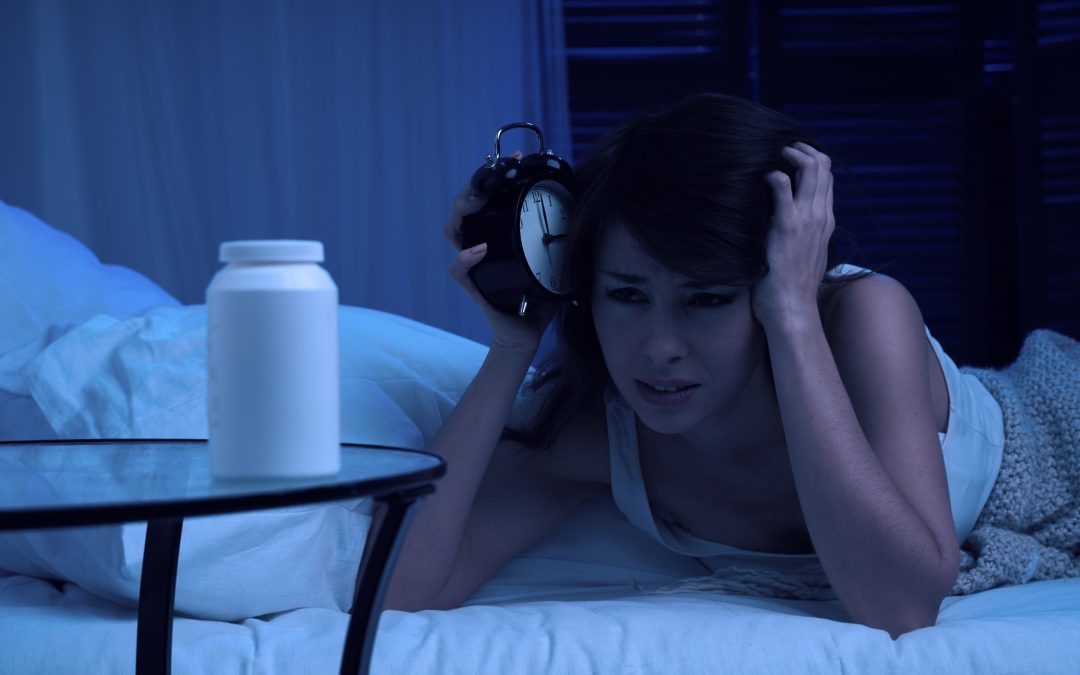Have you ever woken up feeling groggy, with your head pounding and your ears ringing? If so, chances are that you may have been suffering from a lack of sleep. Insomnia can be incredibly detrimental to your overall health–both physically and mentally–but did you know it can also impact something as important as hearing?
Recent research has shown that insomnia’s effects extend beyond fatigue or fuzzy thinking and extend into the auditory realm as well. In this blog post, we dive deep into this topic to explain how insomnia affects hearing, what factors might lead to such an effect on sound processing, and a few tips for getting better rest at night.
What is Insomnia and How Does It Affect Your Hearing
Insomnia is a sleep disorder that affects many people worldwide. It’s characterised by difficulty falling or staying asleep, which leads to poor quality and inadequate sleep. The lack of sleep caused by insomnia can have a direct impact on your hearing.
Studies have shown that insomnia can lead to hyperacusis, a condition where normal sounds become uncomfortably loud, and tinnitus, a ringing or buzzing sensation in the ear. People with insomnia may also have trouble concentrating, which can affect their ability to hear and understand speech.
It’s crucial to seek medical attention if you suspect you have insomnia to prevent potential hearing damage or complications.
Signs and Symptoms of Insomnia
Insomnia often presents itself through a range of symptoms that can greatly affect an individual’s daily life. The most readily identifiable sign is difficulty in falling asleep, despite feeling tired. However, insomnia can manifest as frequent waking during the night, or the inability to go back to sleep once awakened.
Other symptoms include waking up too early in the morning, still feeling tired despite a full night’s sleep, irritability, depression, anxiety, increased errors or accidents, and difficulties with paying attention, focusing on tasks, or remembering things.
If you experience any of these symptoms regularly, it might be indicative of insomnia, and it’s recommended to consult with a healthcare professional.
How Insomnia Impacts Your Hearing
Insomnia can significantly impact your auditory health in several ways. One of the primary effects of insomnia is fatigue, which can decrease your ears’ sensitivity to sound frequencies, leading to mild hearing loss. Moreover, chronic insomnia can trigger tinnitus, a condition characterised by a constant ringing or buzzing noise in one or both ears, which can further impair your hearing.
Insomnia can also lead to hyperacusis, a heightened and painful sensitivity to everyday sounds, which might not be loud for others but can seem unbearably loud for the individual suffering from the condition. This hyper-sensitivity can make it challenging for sufferers to tolerate daily auditory environments, further isolating them and aggravating their sleep disorders.
Furthermore, sleep deprivation due to insomnia can affect cognitive functions, including attentiveness, causing difficulty in focusing on sounds and understanding speech, especially in noisy surroundings.
Understanding these implications of insomnia on your hearing health underscores the importance of treating sleep disorders promptly. If you suspect that your hearing difficulties might be linked to your sleep issues, it is vital to seek professional medical advice.
Strategies to Improve Sleep Quality
1. Adhere to a sleep schedule: Try to go to bed and get up at the same time every day, even on weekends, to maintain your body’s internal clock.
2. Optimise your sleep environment: Ensure your bedroom is dark, quiet, and cool. Consider using earplugs or a white noise machine if needed.
3. Limit exposure to screens before bedtime: The light emitted by phones, tablets, computers, and TVs can interfere with your body’s production of melatonin, a hormone that regulates sleep.
4. Engage in regular physical activity: Regular exercise can help you fall asleep faster and enjoy deeper sleep.
5. Avoid heavy meals and caffeine before bed: These can disrupt your sleep cycle and make it harder for you to fall asleep.
6. Establish a relaxing bedtime routine: This could include activities like reading a book, taking a warm bath, or practising relaxation exercises.
7. Manage stress: Techniques such as meditation, deep breathing, or yoga can help you manage stress and anxiety, thus improving sleep quality.
8. Avoid long daytime naps: While a short nap can be beneficial, long or irregular napping during the day can negatively affect your sleep.
9. Limit alcohol: Too much alcohol can interfere with your sleep cycle and cause disrupted sleep patterns.
10. Consult with a healthcare professional: If you’ve tried these strategies and are still struggling with sleep, it might be time to consult with a healthcare professional for further assessment and advice.
The Benefits of Adequate Sleep for Your Hearing
Ensuring that you get adequate sleep each night can have a profound impact on your overall hearing health. Quality sleep aids in the recovery and restoration of our bodies, including our auditory system. When you are well-rested, your ears can effectively process sounds and maintain a balanced sensitivity to varying sound frequencies, thus reducing the risk of hyperacusis.
Adequate sleep also aids in cognitive functions vital for hearing, such as attention and memory. A well-rested mind is more capable of focusing on and interpreting the sounds around you, enabling better comprehension of speech especially in noisy environments.
Furthermore, a healthy sleep pattern can potentially alleviate the symptoms of tinnitus. During sleep, the brain undergoes various restorative processes that can help mitigate the intensity of the perceived ringing or buzzing noise common in tinnitus sufferers.
In a nutshell, maintaining good sleep hygiene improves your overall health and well-being and contributes significantly towards preserving your hearing health. An investment in quality sleep is essentially an investment in comprehensive wellness.
About Us
At Carlisle Hearing Center, we are dedicated to providing quality care toward improving your hearing health and quality of life. Hearing-related issues can often make you feel alone, but with our technologically advanced, affordable hearing solutions and top-notch advice, you can confidently live your life, assured that we are always looking out for you and your loved ones! Contact us today to schedule your free hearing test and subscribe to our newsletter to learn more about our hearing solutions and the latest updates in the hearing aids industry!

